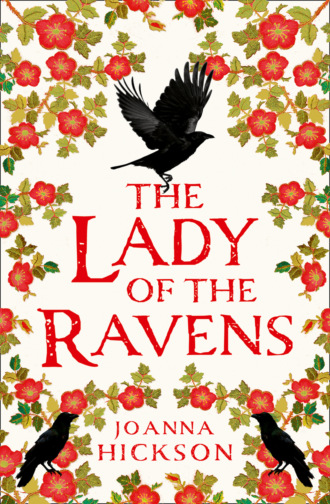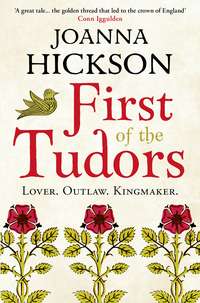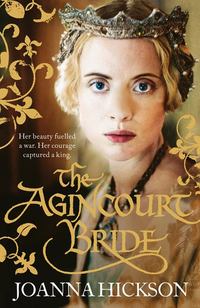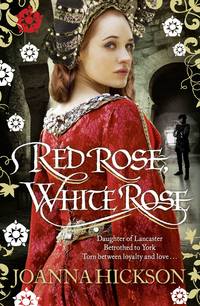
Полная версия
The Lady of the Ravens
One of the men spoke up. ‘In view of these precautions, sir, how would anyone manage to corrupt the royal bed? If everything is so carefully locked away and checked and the Privy Chambers are restricted to sworn servants, it does not seem very likely.’
Usher Gainsford cleared his throat and a flush stained his cheeks. ‘One of a yeoman’s duties is to report any hint of a colleague failing in his loyalty. You have all been chosen because you are known to be staunch Lancastrians but King Henry is anxious to unite the country, bringing York and Lancaster together under his rule and the Tudor name, ending the recent years of strife. So it is to him and the family he intends to have that his household will swear allegiance and obedience. This will be a Tudor reign and in due course, God willing, a Tudor dynasty but to begin with this may not content everyone. Dissidents may contrive to be appointed to the royal household. Treachery can emerge anywhere. You, as individuals, will be responsible for reporting anyone criticising the Tudor reign, or showing the slightest preference for another house, to the Lord Chamberlain or his deputy.’
I had no great sympathy with dissidents, having lost my father to a Yorkist army fourteen years ago, but I found this last order bittersweet as I took my oath of loyalty and I hoped I would not be expected to observe and report on the new queen’s commitment to the Tudor dynasty that she would be expected to provide. Officially, six weeks into his reign, we still did not know the identity of King Henry’s eventual queen, although the fact that his mother had selected me to attend this meeting strongly suggested that it would be the young lady currently living under her roof at her palace of Coldharbour on the banks of the River Thames.
Elizabeth of York, to whom I had almost inadvertently become servant, companion and friend, was the eldest child of King Edward the Fourth and the princess Henry Tudor had vowed to marry in order to boost support for his ultimately successful expedition to establish his own claim to the throne of England. But this had only happened after Edward died unexpectedly and his two young sons were brought to the Tower’s Royal Palace to await the elder boy’s coronation as King Edward the Fifth. This was because their uncle Richard, Duke of Gloucester, apparently unprepared to act as mere Protector to a boy king, contrived to get parliament to declare them illegitimate and to have himself crowned instead. Within weeks the York boys had disappeared from public view and two years later the usurping king, who as their Protector must surely have known what happened to them, had died fighting Henry Tudor’s invading army without revealing their fate.
From my staunch Lancastrian viewpoint, I considered the York history a chequered one; however it also greatly concerned me that Elizabeth and her mother and sisters might never discover when or how the two young princes died – if die indeed they both had. As I left the White Tower I paused to gaze up at the windows of the adjacent Royal Palace where the princes had been accommodated and in which soldiers and other Tower residents had reported catching occasional glimpses of their small, pale faces – until all sightings mysteriously ceased.
Although his victory in battle against the usurper Richard had brought King Henry to the throne, I was aware that it must also have left him with an urgent need to feel secure on it and a strong sense that he was not. Several leading Yorkist knights and nobles, captured after the battle, were now incarcerated in towers around the fortress and might expect to lose their heads as traitors to the new crown. However, peering through the open gate in the wall, which led onto the green beside the castle’s Church of St Nicholas, I could see that no scaffold had yet been erected there. Instead, bowmen had set up butts and were using them to hone their archery skills.
Remembering Sir Richard Guildford’s vehement comment that all soldiers detested ravens, I became anxious when one of them landed on the gateway arch. Within moments I heard the threatening zing of an arrow and intuitively ducked, as it seemed almost to skim my headdress. My heart skipped several beats but relief flooded my veins when I saw the raven fly off and the arrow drop harmlessly over the outer curtain wall, presumably into the moat.
‘Devilish bird!’ I heard an archer shout. ‘I’ll get you next time.’
2

THE PALACE OF COLDHARBOUR had acquired its royal status after King Henry repossessed it and granted it to his mother, knowing her fondness for the old mansion where she had lived during the happy days of her marriage to Sir Henry Stafford. After his death she had been obliged by King Edward to marry his Steward of the Household, Lord Thomas Stanley, and move to his London home at St Paul’s Wharf, a house that held no fond memories for her.
Coldharbour was a stately but rambling residence, set high above the Thames with views of London Bridge and across the river to Southwark. Its long garden sloped down to a private dock, making travel between it and the other Thameside royal palaces swift and easy. On my return there from the Tower I found Elizabeth of York seated under the light of a casement window reading a letter, which she waved at me fretfully.
‘The king’s messenger has been, Joan. Henry has not visited me for a week and now he apologises that he cannot invite me to witness his coronation. What am I to think?’ She was an undeniably beautiful girl, blue-eyed and alabaster-skinned, just coming into full bloom as she approached the end of her teenage years. But at that moment her face was flushed and her brow creased in frustration.
I made a brief curtsy and took the letter from her, perusing it quickly. In order to usurp the throne, Richard of Gloucester had managed to persuade members of parliament that his dead brother’s marriage was invalid, rendering its offspring illegitimate and the eldest boy therefore ineligible to inherit the crown. The letter explained, quite apologetically I thought, that as long as this heinous Act of Royal Title remained on the statute book, according to law Elizabeth was still illegitimate. Therefore all the noble ladies due to witness the king’s coronation at the end of October would outrank her, so King Henry felt it was not advisable for her to attend. Once he had been crowned and a new parliament assembled, the Act would immediately be repealed and she would be restored to her rightful position as premier princess of the realm.
‘Henry will be crowned king but the letter makes no mention of me becoming queen,’ Elizabeth complained. ‘I begin seriously to wonder if he intends to marry me at all and if not, what does he plan to do with me? I feel insulted and abandoned – no longer even sure that I wish to marry him, but whatever would I do otherwise?’
The intensity of her resentment alarmed me. She was usually so calm and serene and I searched for words to soothe her anguish. ‘He signs the letter as “your loving friend”,’ I pointed out. ‘And has he not sent you bolts of velvet and damask cloth and scores of ermine skins for trimmings? These are hardly the presents of a man who does not intend marriage. They will make a gown fit only for a queen.’
Elizabeth’s frown deepened. ‘I suppose you’re right, Joan,’ she said with evident reluctance. ‘On the surface he appears all kindness and generosity but he is miserly with his time. Not only do I have no date for my wedding but I hardly know the man who has supposedly vowed to marry me. I feel like a prize heifer in the sale ring, on offer to the highest bidder.’ Her fingers strayed to her temples and she rubbed them distractedly. ‘Where have you been anyway? I have another headache and I was looking for you to go to the apothecary and fetch more of that vervain potion.’
I folded the letter, written in King Henry’s own looping hand; surely another sign of his wish to please his intended bride. ‘I will go now if you like,’ I suggested, handing it back. Conscious of Usher Gainsford’s warnings, I refrained from making any mention of my morning activities.
‘Yes, thank you, Joan. But I think I will lie down meanwhile. Will you draw the curtains around the bed and help me remove my gown before you go? Wake me when you return if I’m asleep, won’t you?’
Elizabeth was encouraged not to venture out into London’s streets, even in a concealing hood. Most Londoners had always heartily supported her charismatic father, King Edward, and probably would welcome a glimpse of his daughter but King Henry cited the violent street clashes of persistently opposing factions as a reason for her to keep out of sight. Clearly it was considered that a lowly commoner like me could run the risk. Before I left I set a maid outside her door, who might hear her if she called.
Coldharbour was situated not very far from the Tower but it was quite a walk to Blackfriars at the western end of the city wall, where Elizabeth’s favoured apothecary had his shop. However, despite the gutter stink of emptied piss-pots, I enjoyed negotiating the bustle of Thames Street and, in daylight at least, the greatest danger was only from the flyblown offal and dead vermin that littered the thoroughfare.
To my delight, in one of the alleyways leading down to the river, I spotted a busy flock of ravens squabbling around the carcass of a stray dog. London was full of such carrion, which attracted these large birds in considerable numbers. Goodwives might chase them away but they were surely of help to the unfortunate gongfermers, overwhelmed by the task of waste disposal in the city. Over the years I had learned that most of the citizens did not share the Tower garrison’s intense dislike of ravens. Stopping briefly to watch, I admired the birds’ glossy black feathers, which seemed to throw off blue and green reflections under the stray rays of sun that pierced the gloom under the overhanging timber-framed houses flanking the alley.
When I reached the apothecary’s shop in the black monks’ walled enclave, I took it upon myself to ask whether any harm could come of taking too much of the vervain potion but was reassured that its soothing qualities were potent but harmless, so I gave an order for several bottles. While this was being fulfilled, I stole an hour to pay a visit to my mother, who rented rooms in the Blackfriars’ extensive demesne. Katherine, Lady Vaux, to give her official title, although her friends called her Kate, was a popular resident of the tenements there, which had been built to house the widows and families of knights killed on the battlefield. Whenever I called in, I usually found some other lady with her, seeking comfort or advice from one who was known to be wise and well acquainted with grief. On this occasion however, I found my mother in the process of teaching her maidservant, Jess, how to write but the instant I arrived she put aside the waxed tablet they had been using and shooed the girl away into the scullery.
‘What a treat to see you, Gigi!’ she exclaimed, embracing me warmly and delighting me, as she always did, with the use of my childhood nickname and the slight foreign lilt in her voice. I had always thought her a handsome woman, whose dark features I had inherited, although sadly not, in my view, her marvellous warmth and generosity. ‘I expect you have been very occupied with your bride-in-waiting. And I gather Lady Margaret is now ruling the kingdom, while her son is closeted away learning the laws and liberties of England. How is my old friend? In her element I warrant.’
Her friendship with the king’s mother went back more than thirty years, to when she had been a maid of the chamber to Queen Marguerite. They were much of an age and Lady Margaret had been a maid of honour at court before her brief but fruitful marriage to Edmund Tudor, King Henry VI’s half-brother.
‘Indeed. She is officially presiding over the Privy Council,’ I said, taking a seat on the carved settle beside the well-stoked fire. ‘I don’t sit in the council obviously, but I can imagine her style of leadership rather resembles the red dragon on King Henry’s battle banner, breathing flames of fire.’
My mother shrugged and gave a rueful smile. ‘She may be fierce in public but she was always the kindest of friends. I would never have married your father if she had not promoted our match with the king. Even after Edward of York took the throne and forced us to flee back to Piedmont she always wrote to me. And what would I have done with you and Nicholas when poor Queen Marguerite begged me to stay with her as she was taken prisoner to the Tower? Margaret took you in and refused any payment.’
Her memories of that time always made her a little sad. England had been in turmoil. Edward of York had been victorious at yet another bloody battle in which my father was killed, fighting alongside Queen Marguerite’s treasured only son, who also died. In mourning and despair, the two bereaved friends were taken captive to the Tower of London and that is how my brother and I had gone to live with the present king’s mother. Although neither royal nor noble, the life of the Vaux family had not been without incident.
I nodded in acknowledgement. ‘It’s true that she’s always been generous and now she is also working hard on behalf of her son. While he is closeted away making plans for England, my lady leaves Coldharbour after Prime and rarely returns before Compline. But we talk together at supper and she tells me that she misses you greatly. However I can assure you that she doesn’t miss a Mass, even though these days her chaplain has to follow her around like a lap dog.’
This picture made my mother laugh. She had poured two cups of ale from a jug and carried them over to sit down beside me. ‘Margaret’s always been punctilious in her piety; but I hope you’re not implying that I was once her lap dog,’ she added, passing me a cup.
My walk had made me thirsty and I sipped eagerly before responding, ‘Far from it, Mamma. You will always be Lady Margaret’s greatest friend. If you were ever anyone’s lap dog it was Queen Marguerite’s. There is no denying that you were a martyr to her.’
For the second time that day I found myself recalling my first childhood visit to the Tower when, after the encounter with the raven, I had found my mother still trying hopelessly to console the bereaved and captive former queen. Out of her mind with grief, Queen Marguerite had taken one look at me and dissolved into tears, wailing, ‘I lost my one child, my beautiful Prince Édouard, slain in battle; only seventeen and dying unshriven!’
I had then endured a sobbing hug that lasted for what seemed like an age. Subsequently, during the scant hour’s visit I had been permitted, it had been impossible for us to share our own grief over my father’s battlefield death alongside the prince, without his mother’s continuous keening as an accompaniment. Then, after the French king at last paid her ransom, Marguerite had somehow persuaded her faithful companion to go back with her to Anjou and leave my brother and me with Lady Margaret. During the next six years I saw my mother only once, when she managed to escape to England for a brief visit. As a result I always wondered whether such selfless loyalty should have taken precedence over motherly love.
Now my mother regarded me solemnly. ‘You are right, I was. I admit it. But look what a superb education you received as Lady Margaret’s ward. Few girls are granted such a chance and you have made the most of it.’
I nodded again and took another gulp of ale. After a pause I added, ‘I see you are teaching Jess her letters.’
She rolled her eyes. ‘Well, I’m trying, but she makes a better scullion than a scholar.’
It was my turn to laugh. Now in her early forties, my mother had never known the luxury of having her own household or even bringing up her own children and yet she displayed a sense of humour and a zest for life that never ceased to surprise me. Where I wore dark clothes out of choice, she preferred to dress in light colours, sewing her own kirtles in blues and pinks and somehow acquiring gowns in colours like mustard yellow and dove grey, trimmed with rabbit fur, and displaying her widowhood only in the rather old-fashioned white veils she chose to wear. Or perhaps she could not afford to replace them with the new headdress fashions, as a result of having served an impoverished ex-queen and being short of funds all through the York years.
I changed the subject. ‘What news of Nicholas? Has he taken possession of the Vaux honours yet?’
After King Edward seized the throne, his first parliament had confiscated the properties of all those Lancastrian landholders who had fought against him. Thus on reaching his majority, my brother had been denied his inheritance. Now that King Henry had taken the throne he expected to reclaim it.
My question kindled the light of battle in my mother’s eyes. ‘No, and he is very keen to do so. King Henry has called a parliament for November and promises it will revoke the attainders; then it will be a matter of reclaiming the manors, but I imagine in some cases that may not be easy.’
‘I thought King Edward granted you your dower lands when you returned from France after Queen Marguerite died.’
‘Yes, he did, but I have been subsidising Nicholas and the income barely covers our basic needs. I am hoping my well-connected daughter will acquire me some employment in the household of the new queen, when we have one.’ She gave me an inquiring look. ‘When is that likely to be, do you know?’
‘No – and neither does Elizabeth. She fears King Henry may even call the marriage off.’
‘Surely not! His mother would never let him do that. Margaret has promoted that marriage for years and there is no doubt it would do much to placate persistent Yorkists. Why should he back out now that he has the throne?’
‘Perhaps because he wants to establish a Tudor dynasty.’ I laid stress on the Tudor name, recalling the words of Usher Gainsford. ‘A queen without ties to any English house might suit him better than one who has a claim to the throne that some consider stronger than his.’ I dropped my voice as I said this, conscious that Jess might have Yorkist leanings and her ear to the door.
‘You mean marry a foreign princess?’ My mother gave a dismissive wave of her hand. ‘I don’t think so. None of Europe’s present rulers would risk giving a daughter to a king who’d won his throne by a twist of fate. They’d want to see him keep it for a few years first and Henry Tudor needs to get his dynasty started as soon as possible. I’d say he’s just waiting to be anointed with the holy chrism and then Elizabeth will be whisked to the altar!’
My mother made a good point, although an opposing view was aired at my next port of call. Having collected the apothecary’s order, I took a roundabout route back to Coldharbour so that I could also drop in on my friend Rosie in Crown Seld, a square off the busy Cheapside market, where her mother ran a business devoted to the arcane craft of passementerie: the production of decorative trimmings in silk.
The workshop was a riot of gossip and colour. Spools of silks in a score of hues were stacked on shelves along the walls and on the tables at which the weavers were working, cones of costly gold and silver thread were in constant use by rows of females of all ages. Young apprentices worked under the eagle eyes of older workers, whose gnarled and calloused fingers revealed their experience in fashioning the delicate braids and laces used to embellish and fasten the gowns and robes of the wealthy and noble.
This form of employment was the exclusive domain of women, men lacking the dexterity needed to handle the delicate threads involved. The practitioners were called silkwomen and inevitably, when a group of females were gathered together employing busy fingers while their minds roamed free, there was always plenty of chatter. In days gone by, Lady Margaret had often sent me there to collect her passementerie purchases and during these errands I had discovered the stimulation of city scandal and become particularly friendly with Rosie, a bright, forthright woman a few years my senior, quick-witted, married to a mercer and a fount of information from the streets and guilds.
Knowing that she hated stopping in mid-weave, I pulled up a spare stool beside her and, like my mother, she immediately sought inside knowledge about the new royal regime. ‘What a welcome guest you are, Joan! I hope you’re going to tell us why we’ve heard nothing more about our new king’s much-vaunted marriage to Elizabeth of York.’ Blonde and buxom in a blue kirtle and brimmed linen cap, Rosie winked at me at the same time as she expertly tied off the end of a gold lace, clearly part of a batch destined to attach sleeves to a gown or doublet belonging to some exalted personage. ‘Since her triumphant return to London she seems to have disappeared entirely. I could say much like her brothers. Where’s she hiding and why?’
It was true that Elizabeth’s arrival in the capital five weeks before had been greeted with great joy and celebration by its citizens, who had lined the streets waving banners, throwing flowers and shouting her name as she rode past – in marked contrast to the somewhat muted reception afforded the new, self-declared king, Henry Tudor, some days earlier. However, not wishing to feed the city rumour mill, I dodged the question. ‘You’re obviously working on an order for some rich customer, Rosie,’ I remarked, fingering the lace she had just completed. ‘This looks fit for a queen.’
My evasive reply drew a frown from my friend. ‘Well, there’s no secret about this,’ she said, taking back the lace and adding it to the pile beside her. ‘Tomorrow we’ve got to send two hundred gold cord-laces to the pointmakers, who’ll fit the aiglets, and then they’re going to George Lovekyn up in Threadneedle Street.’ Wasting no time, she hitched a fresh length of gold thread to her thumb and finger and began another line of loops, her fingers flying up and down and to and fro like shuttles, so fast that I couldn’t begin to follow the pattern they made, only witness the ever-growing length of the braided lace they produced.
‘Wasn’t Master Lovekyn recently appointed Royal Tailor of the Great Wardrobe?’ I asked. ‘You must have heard that news, if I have.’
Her expression cleared. ‘Ah, so you think these laces are meant for the Lady Elizabeth? For her wedding garb perhaps?’
‘I’m saying no more, except that some fabulous fabrics and furs were delivered to a certain lady recently.’
‘Then why wouldn’t we send the laces to where the lady is staying?’
I affected wide-eyed innocence. ‘Because I haven’t mentioned who the lady is, or where she is living.’
Rosie cast an exasperated look at the other women working nearby, whose ears had all been tuned to our chat, and they exchanged dissatisfied shrugs. I knew that my hints would be embroidered and spread almost as fast as their fingers wove each lace but I considered that a few rumours refuting the prevailing gossip that the Lancaster–York wedding was in doubt could only be beneficial to both the ladies I served.
Her fingers still flying, Rosie took another tack. ‘They say King Henry won’t marry King Edward’s daughter until he has proof that his sons are dead. But some of those new yeomen guards searched the Tower for days and found no sign of them.’
‘Well, if they were alive after Richard was crowned, don’t you think he would have shown them to the people of London? After all, parliament had declared them illegitimate so they were no threat to his reign.’
‘That depends if you really believe they were bastards.’ It was one of the older women who spoke, her voice sharp with sarcasm. While King Edward had been almost universally admired in London, the same was not true of his brother Richard, whose main support had been in the north of the kingdom. ‘Henry Tudor’s yeomen might have been sent to make sure the boys definitely are dead now, if they were not before.’
‘That’s possible,’ Rosie agreed. ‘What does their sister think, Joan?’






